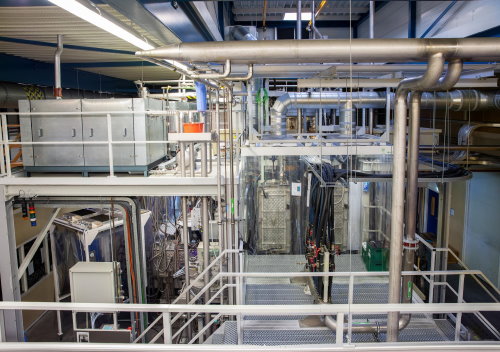Dutch cleantech company E-magy says it’s ready to start ramping up production of nanoporous silicon anodes for lithium-ion batteries to industrial scale. The aim is to build a production site with a capacity of 3,000 tons per year, capable of serving Gigafactory-scale battery production for half a million new electric cars annually.
The core technology of the company based in Broek op Langedijk is a high-throughput silicon alloy casting machine used to manufacture silicon ‘nano-sponge’ anodes. These increase battery energy density by 40 percent compared to traditional graphite anodes while shortening charge times and lowering costs. E-magy’s primary focus is on the next-generation batteries for electric vehicles (EVs), though the improvements would benefit other applications as well, such as e-bikes, handheld devices or energy storage systems.

“We’ve demonstrated that batteries with our nanoporous silicon work and that the energy density is much higher than possible with graphite. Following these successful tests, we’ve produced several batches of the material for the largest EV manufacturers in the world, allowing them to validate our technology for their specific battery and vehicle applications. As these customers confirm the good results we see in our lab, now is the time to start ramping up our production to an industrial scale,” says Casper Peeters, co-founder and CEO of E-magy.
The current pilot production site can produce up to 25 tons of nanoporous silicon per year. E-magy is now preparing the launch of an additional funding round for construction of a new production facility in the Netherlands, with a capacity of up to 3,000 tons.
There’s another Dutch hopeful involved with nanosilicon anodes: Leydenjar. This company, working from Leiden and Eindhoven, is focused on developing manufacturing equipment for the deposition of nanotextured silicon.




